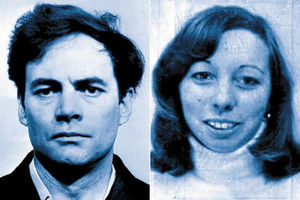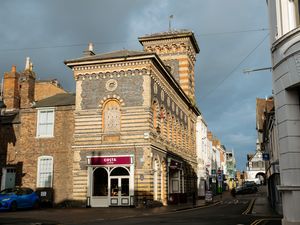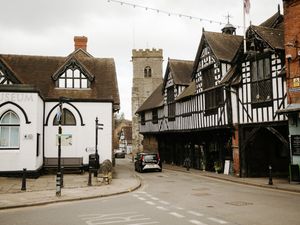Black Panther Donald Neilson dies in hospital
Black Panther Donald Neilson – who murdered Shropshire heiress Lesley Whittle in 1975 – has died in hospital, it was announced this afternoon.

Black Panther Donald Neilson – who murdered Shropshire heiress Lesley Whittle in 1975 – has died in hospital, it was announced this afternoon.
The serial killer, who also murdered three sub-postmasters during armed robberies, was given four life sentences in June 1976.
He was one of a small group of notorious prisoners who were told they would die behind bars.
The 75-year-old was taken to hospital from Norwich prison with breathing difficulties on Saturday and was pronounced dead at about 6.45pm yesterday, the Prison Service said today.
Neilson, a jobbing builder, kidnapped 17-year-old Lesley Whittle from her home in Highley, near Bridgnorth, leaving a ransom demand for £50,000.
Her body was later found in an underground drainage system hanging from the bottom of a ladder to which Neilson had secured her by the neck with wire.
Lesley was the daughter of George Whittle, who ran the Whittle coach company in Kidderminster. She was heiress to a substantial sum. Nobody from Whittle's wanted to comment today.
A Prison Service spokesman said that an investigation into Neilson's death would now be carried out by the independent Prisons and Probation Ombudsman.
At 17, Lesley was the youngest of Neilson's four murder victims.
She was a student at Wulfrun College, Wolverhampton, when she was kidnapped on January 14, 1975.
Her naked body was found on March 7 hanging in a drainage shaft at Bath Pool Valley in Kidsgrove, Staffordshire. It is not known whether she fell from a ledge inside the shaft or was pushed by Neilson.
Neilson was arrested in December 1975 when his suspicious behaviour prompted police to stop and question him.
He was equipped for a robbery in Mansfield and immediately pulled a gun on the police and forced them into his car.
One of the officers grabbed the gun and, after a struggle involving both police and local people, Neilson was finally arrested.
In June 2008, a High Court judge ruled the notorious killer must never be released from prison. Neilson had applied for the setting of a minimum jail term which would have given him a chance of parole.
But Mr Justice Teare, sitting in London, announced that Neilson's "whole life" tariff must remain. He said: "This is a case where the gravity of the applicant's offences justifies a whole life order."
The judge rejected argument on behalf of Neilson, who was sentenced to four terms of life imprisonment at Oxford Crown Court in 1976, that the sentencing "starting point" should be one of 30 years.
Mr Justice Teare said that between February and November 1974, Neilson – who lived in Bradford – "shot and killed three sub-postmasters in the course of armed robberies of their premises".
He added: "The trial judge said that the applicant (Neilson) never set out without a loaded shotgun or other loaded weapon and that he never hesitated to shoot to kill whenever he thought he was in danger of arrest or of detection."
The fourth murder, committed between January 3 and March 7 1975, was that of Lesley Whittle. Mr Justice Teare said: "The manner in which the young girl was killed demonstrates a substantial degree of premeditation or planning. It also involved abduction." The judge said that there "are and were no mitigating features".
Mr Justice Teare added: "The trial judge said that the applicant's sentence of life imprisonment must mean life."
The location and manner of Lesley Whittle's death "indicates that she must have been subjected by the applicant to a dreadful and horrific ordeal", he added.
See also:
Police Panther notes destroyed
Lesleys murderer is dying
Black Panther will die in jail




